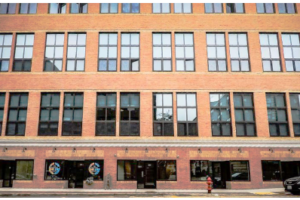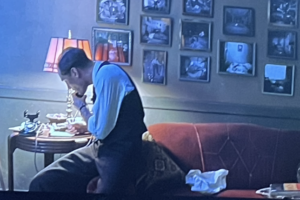I will not pretend to understand the ins and outs of the economy or the real estate market. I do know that there is supposedly no such thing as a free lunch and that we should buy low and sell high.
I do, however, know a thing, or maybe two, about human behavior and emotions, and find it interesting to observe how economics and psychology influence each other.
First of all, I will be so bold as to say that this economic downturn is NOT devastating to many of us. Can it be devastating for some? Of course. But some people have devastating economic situations even in the good times. People have been known to lose a job during times of plenty, houses go into foreclosure even when the market is good, and many, many people work themselves into insurmountable debt even when they are making a hefty salary. Yes, at this time in our history more people are struggling than we’d like to see, companies are laying off workers, housing prices have fallen, and belt-tightening has affected small businesses that specialize in things that are non-necessities. But our situation has as much to do with our psychology as it does with our economy. My financial planner asked me recently how worried I was about the economy, and I said I really wasn’t. Her answer to me was "good, I’m glad you’re not worried." I told her that I wished I had more money lying around to keep putting into my investments while the market is so low. Am I worried about how I might be affected since I am self-employed and have to count on my practice staying stable through this economic uncertainty? Of course. Am I worried about what might happen if for some reason I had to sell my house before the market rebounded? Yes. But am I worried about my retirement fund getting depleted, even though the bottom line is much lower than it was a year ago? No. I might feel differently if I were turning 65 this year and not 40, since I would be looking at having much less money to live on as retirement would be imminent. But for people not living on their retirement right now, all worrying does is breed more worry. We have only lost money on paper. We only lose it for real if we start cashing out.
I think there are many reasons for the panic, and I believe the panic has been fed by the media to a degree that is truly destructive and detrimental. We have a thousand television channels, we have the Internet, newspapers, a constant stream of news. We need drama. We need "soar" and "plunge" and superlatives like "highest" and "lowest" and "never before seen." How could we possibly make news if we just succinctly reported the facts? Add to this that our last president was not a darling of the press. By the end of his term, he was being blamed for everything, never mind that the economic downturn is global, never mind that the seeds for this were planted more than a decade ago when the government was practically forcing banks to give mortgages to people who didn’t really qualify. So, as the election got closer, all we heard about was the sorry state of our economy, and how the new regime was going to fix it, as if one person could really fix a global economy. Like Chicken Little, the media told us time and again that the sky was falling. So, of course it fell a little further than it might have otherwise because we panicked. We took our money out of the markets. We put off some big purchases for fear that we could be unemployed tomorrow. Our economy stagnated, in part, because we panicked and put our money under our mattresses. The worst part is that the big businesses panicked too. Did they really need to lay off so many people? Weren’t there other ways to cut costs while riding out the normal sine curve of the economy? The news is full of greedy executives riding on the backs of the proletariat, banks asking for bailouts, Ponzi schemes, and we can’t find some other way to fix the bottom line but to lay people off?
Like I said, I am not an economist, nor do I even play one on TV, so what right do I have to be writing this article? You should stop reading now; it’s all conjecture. However, as an expert in the psyche, I am qualified to help people ride this difficult period out as smoothly as possible. First of all, the panic is not good, folks. After all, many a lovely neighborhood was turned into a slum by something known as "White Flight." This happens when a minority family or two moves into a neighborhood, and the old timers panic and start selling. What this does is drive the real estate prices in the neighborhood down so that poorer families start moving in, crime goes up, streets don’t get cleaned, and anyone who chooses to hold out ends up losing tremendous money on their homes, including those couple of well-heeled minority families who came in while the neighborhood was still great. This trend occurs strictly because of a panic of what might happen, not in reaction to anything that has already happened. Today there are more areas where diverse ethnic groups coexist happily, so this trend is not as common. Take Sleepy Hollow, for example — if I open my window I can literally hear four languages being spoken right on my block. Also, many areas that were war zones when I was growing up in Brooklyn have been gentrified and housing prices have soared. But we still have panic that causes damage. If we all panic and take our money out of the bank and put it under the mattress, the bank will fail. If we sell stocks in corporations at a high rate, the corporation will fail because it will be spending money buying back our stocks rather than on paying its workers or researching new technologies.
So, what’s my advice, besides to keep putting money into the economy? First of all, stop listening to the media. Stop watching every talking head on TV who tells you that the country is going to Hell in a hand basket. Stop reading all the news about how terrible this all is. Do you have a roof over your head? A car in your driveway? Food on the table? An iPod, Xbox, or Wii? Then how bad is the economy for you, really? If the worst happened and you had to sell your house, chances are you have enough equity in it to keep you from ending up on the street. Stop listening. Don’t worry unless YOU have something to worry about. Second of all, keep in mind that the economy is cyclical. Our economy was artificially inflated, we drove housing prices through the roof, we were living the high life, and we were fools to think it would continue like that forever. Now it’s at a low point, but just like the highs, the lows can’t last forever either. Ride it out. We can’t think straight when we panic; it is impossible to be anxious and clear-headed at the same time, so it’s very important not to worry about what might be and just deal with what is. Remember, the media needs drama. "Soar" and "plunge" sound so much more exciting than "up" and "down."
Dr. Barbara Kapatanakes practices psychotherapy in Sleepy Hollow.






